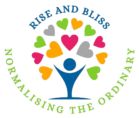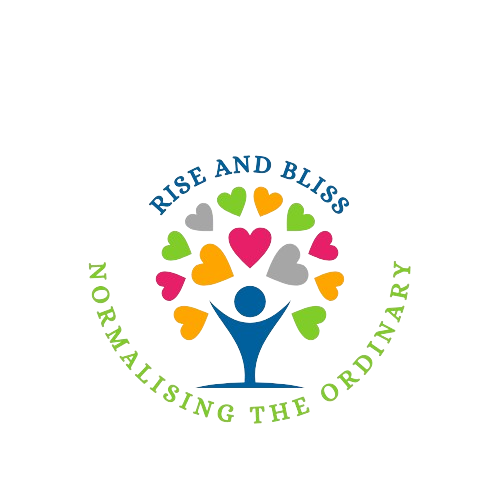
What is a Relationship?
The term “Relationship” can be expressed as the association or connection between two people, and that can be either positive or negative. Whenever, we hear such word, then we usually link it with romantic relationships, however, this should not be the case. Relationship can refer to various connection that an individual have with other people. It can be of parent-child relationship, or friendship or sibling relations or employer and employee relationship.
If you are in a relationship, that doesn’t mean that is a physical intimacy or emotional attachment or positive commitment. Every relationship is unique.
Some basics types of relationships are:
- Blood Relations
- Friendship
- Acquaintances
- Romantic Relationship
- Intimate Relationship
Broadly, relationships can be classified into three kinds, namely, Healthy; Unhealthy; and Abusive.
Healthy Relationships
Healthy relationships are those, in which the companion or partner or individual is :
Communicating effectively;
Respectful;
Trusting and Honest;
Make mutual choices;
Practicing Self-disclosure; and
Resolve their
Conflicts with the help of effective strategies
Unhealthy Relationships
Unhealthy Relationships are those in which the companion or partner or individual is not communicating, not trusting, disrespectful, hide things from others and having compatibility issues
Abusive Relationships
Abusive Relationships are those, in which the companion or partner or individual threatens their partner; mistreats the other person control their companion; indulge in physical violence; accuses the other person that he/she is cheating however, it is not true.
An Idiot’s Guide on How to Form a Relationship.
The need to have human connection is something that people are born with, however, the ability to form healthy relationships with others starts forming during infancy, when the bond between the primary caregiver and the infant is extremely significant. Remember, that adults relationships and their personalities are somewhat depend upon the kind of nurturance given to them by their primary caregiver during their childhood.
The primary caregiver’s unconditional love creates an emotional, trusting and loving bond, and as a result, during adulthood, that person is able to form healthy relationships with others, display a greater social competence, and have high self-confidence. It is absolutely true to say that healthy relationships within the family aids an individual to form good relationships with other people.
On the other hand, if the primary caregiver is not able to create an emotional bond with their child, due to any reason, then that negative relationship might hamper other relationships in the future. Therefore, children who are brought up in a cold family environment might be socially incompetent, like having poor communication skills, also they might not able to create stable relationships with others. Such children might go through with something called “generational trauma”. These traumas hinder the growth of romantic and platonic relationships which might lead to loneliness and commitment issues.
Outside the family, like in schools, children connect with others, make friends, and that also have a great impact on their mental health, and their upcoming relationships in the future. For example, if any child gets bullied during their school time, then there is a possibility that those people might have disruptive personalities and might have low self-confidence and self-esteem. The children who are usually bullied ends up being abusive towards themselves and others or might end up dissatisfied either with their career or relationships.
In short, the child’s environment matters a lot, and that somewhat decides whether they can make stable relationships in the future or not. For example, if a child always sees his parents fighting over little things, how we can expect then that child, during adulthood, will believe in relationships, like marriages.
How to Form Healthy Relationships with People Despite Childhood Trauma:
Self- Awareness: This is one of the essential tools in order to develop good bonds with people. First of all, one should understand themselves, their thought process, beliefs, likes and dislikes. Explicit understanding of yourself is significant, then only you can able to understand others. You should have a clear idea that how your behavior influences others. Having knowledge about yourself helps you to understand others. Understanding your strengths and weaknesses is of utmost importance since it enables you to form bonds with others.
Communication: Communication serves as an important foundation for any relationship. Clear communication not only involves expressing yourself clearly but also involves active listening. Don’t make assumptions about others, rather communicate with them in a proper manner and also express yourself in clear words, but that doesn’t mean to get rude with others. Miscommunication leads to conflicting situation which in turn damages the relationship.
Trust: A building block of a relationship. Without having trust on each other, it is quite difficult to survive in that relationship for a longer period of time. Moreover, it’s a two way thing, meaning both the individuals need to trust on each other. For example, if a spouse controls their partner, always orders them, like what they should do or where they should go, then that means trust is not there, the person is not trusting his spouse choices or beliefs. You can advise, but let them decide what will be their actions. Even in a parent and child relationship, if parents continuously forces their decision on to them, that means it lack trust, and that slowly damages their relationships.
Respect: Respect each other’s values and principles, and opinions. Remember, every person is unique, so if you don’t like your partner choices or their thought process, communicate with them clearly, and in a private place, rather than embarrassing that individual in front of everyone. Respect is essential in order to form stronger emotional bond.
Self-Disclosure: This term can be expressed as to disclose yourself that who you are. Basically, when trust is there in a relationship, then you will feel safer to disclose your feelings and thoughts. Self-disclosure is also one of the essential component of a good communication that ultimately eliminate unnecessary assumptions.

